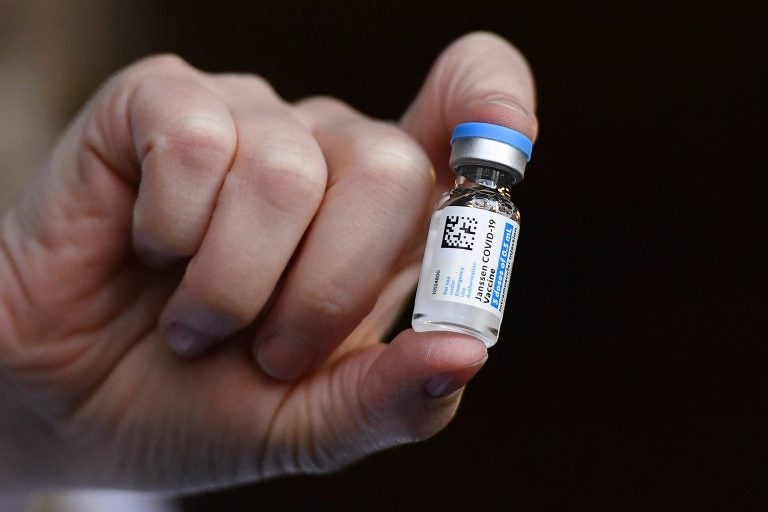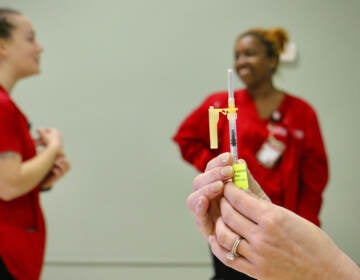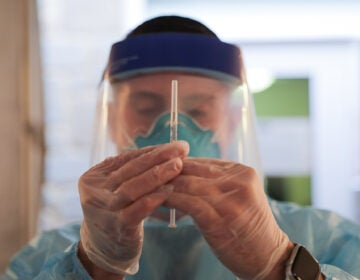South Jersey health departments resume use of J&J vaccine
After an 11-day pause, health departments across South Jersey said they will resume use of the Johnson & Johnson vaccine to reach the state’s most vulnerable residents.

In this March 3, 2021, file photo, the Johnson & Johnson COVID-19 vaccine is held by pharmacist Madeline Acquilano at Hartford Hospital in Hartford, Conn. (AP Photo/Jessica Hill)
Ask us about COVID-19: What questions do you have about the coronavirus and vaccines?
After an 11-day pause on using the Johnson & Johnson vaccine, local health officials in South Jersey are not wasting time in putting the one-dose vaccine back in the toolbox to vaccinate residents, especially those who are homebound.
Officials championed using the J&J vaccine for their most vulnerable residents, particularly those who cannot make it to a mass vaccination site, because it only requires one dose. In comparison, Moderna and Pfizer – the other two vaccines authorized for use in the United States – require two doses. The J&J vaccine can also be stored in a regular refrigerator unlike Moderna and Pfizer which requires specialized sub-zero refrigeration.
Burlington, Camden, and Mercer counties, as well as the City of Trenton, all plan to use the J&J vaccine at clinics this week.
Burlington and Camden counties plan to expand their operations.
Burlington County has begun to take appointments again with at-home vaccinations expected to resume on Wednesday.
Camden County will also use J&J at a pop-up clinic at Cooper River Park Wednesday.
Mercer County will administer at least 300 doses Friday at Mercer County Community College in West Windsor. They will continue to administer the Moderna vaccine at their mass vaccination site at the Cure Insurance Arena in Trenton.
The City of Trenton continued their homebound program using the Moderna vaccine, but will resume use of the Johnson & Johnson vaccine starting Wednesday.
Last week, Gov. Phil Murphy said the state had some 200,000 doses in storage until federal officials determined whether the vaccine was safe. A large shipment of J&J vaccines was received at the end of March.
Federal officials lifted the pause on J&J Friday after investigating 15 cases where rare blood clots were reported after the vaccine was administered. All of the cases were among women. The majority of them were under the age of 50. The Centers for Disease Control and Prevention are advising women younger than 50 years old to be aware of the rare, but increased, risk of blood clots and know that other COVID vaccine options are available.

Get daily updates from WHYY News!
WHYY is your source for fact-based, in-depth journalism and information. As a nonprofit organization, we rely on financial support from readers like you. Please give today.





![CoronavirusPandemic_1024x512[1]](https://whyy.org/wp-content/uploads/2020/03/CoronavirusPandemic_1024x5121-300x150.jpg)


